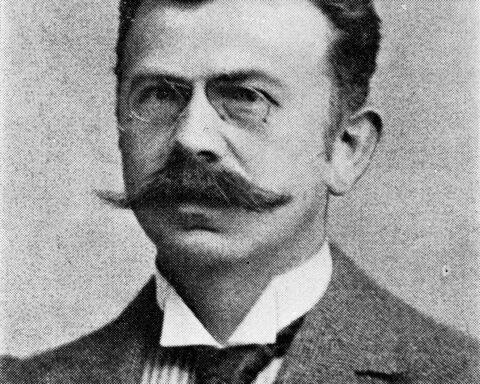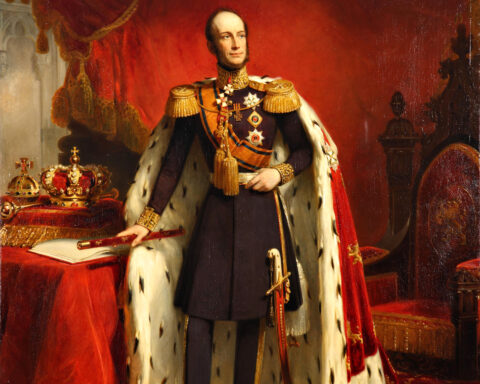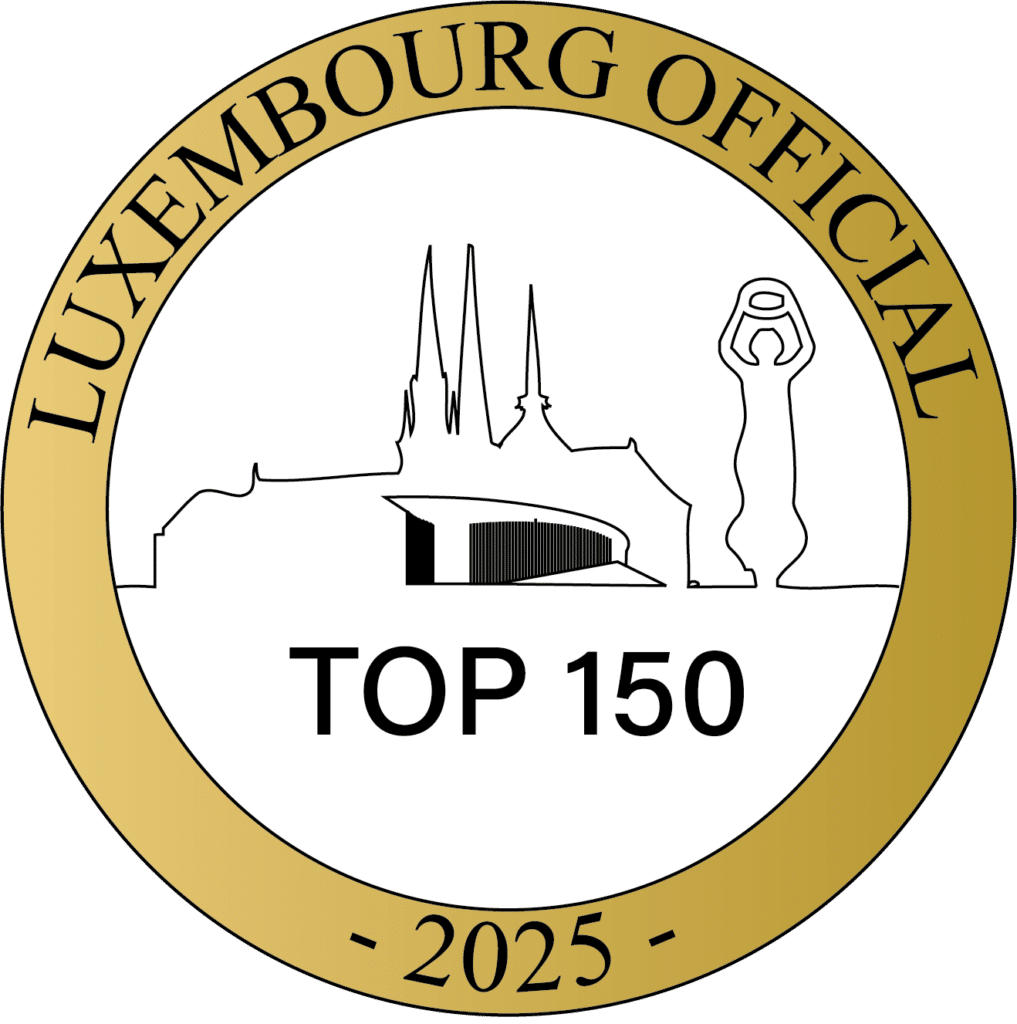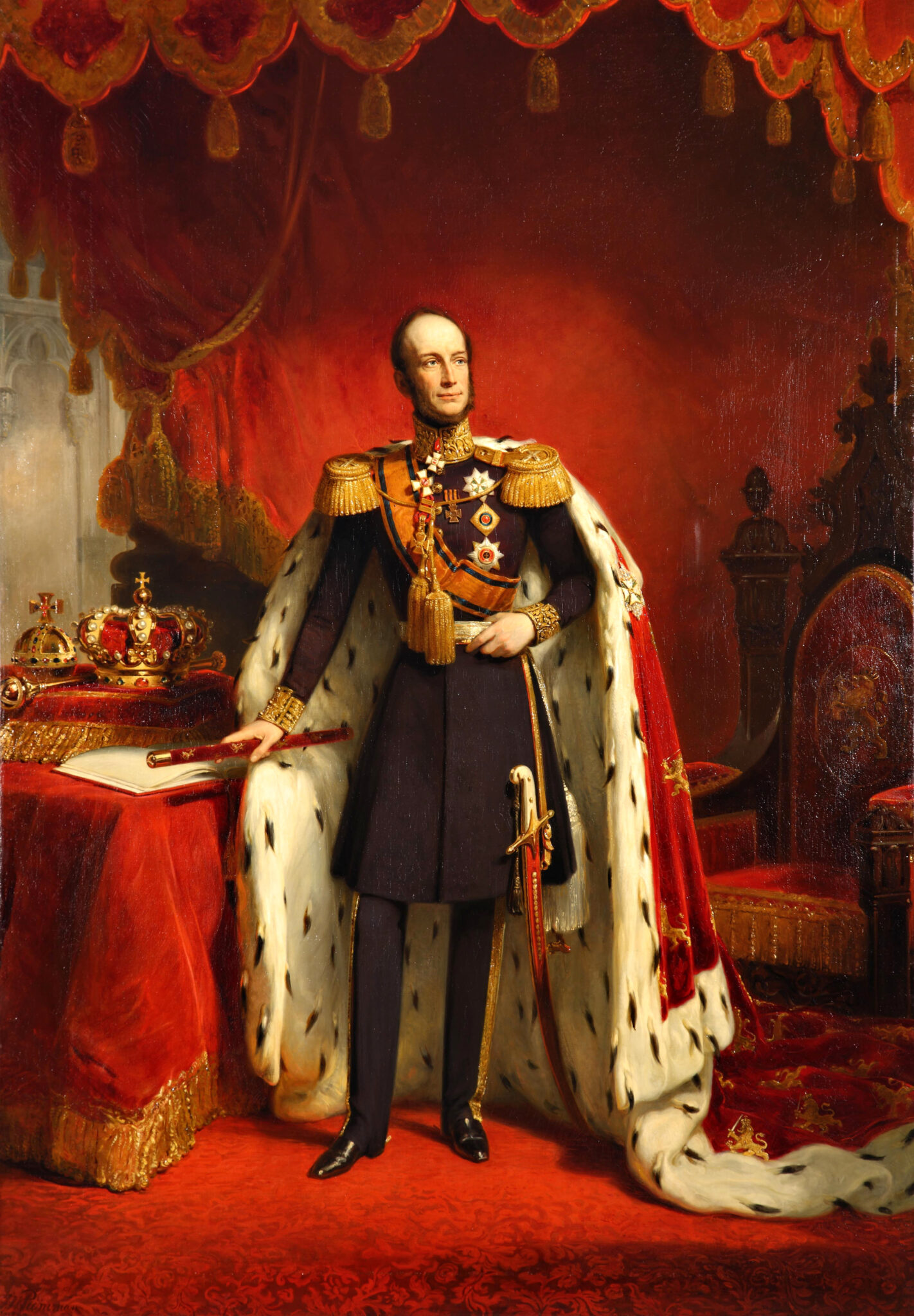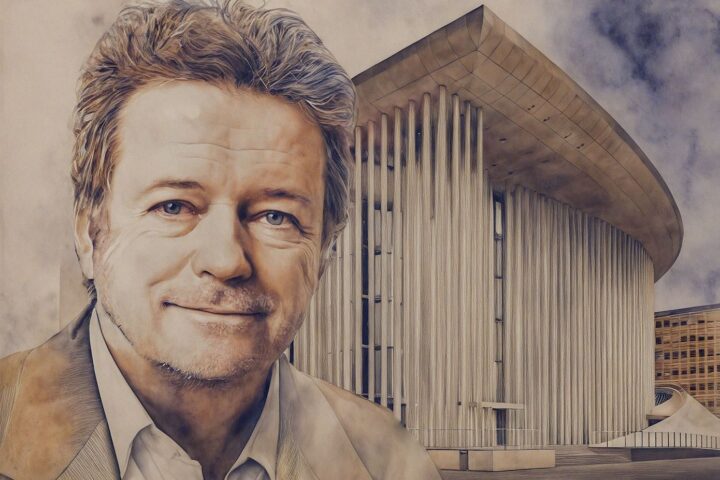Born in 1792, King Grand Duke Guillaume II bequeathed a more liberal monarchy than was expected given the conservatism he inherited from his father. However, his experience from his heroic exploits serving under the Duke of Wellington during the Napoleonic Wars may have contributed to his tolerance and acceptance of the foundations of democracy.
Who was King Grand Duke Guillaume II?
Much of the life of the man who became King of the Netherlands and Grand Duke of Luxembourg was determined by political upheaval. He was born in the Hague three years after the French Revolution started a wave of revolution and war. At the age of three, he was exiled to England and grew up to serve in the British Army. Turmoil swept Europe for the first half of the nineteenth century including his reign between 1840 and 1849. He served as aide-de-camp to the Duke of Wellington. Guillaume II fought Napoleon I in the Peninsula War and finally at the Battle of Waterloo where he was injured. Guillaume I – Guillaume II’s father – treated Luxembourg as a province of his kingdom. He did not take political, economic or religious aspects of the southern provinces into account, which led to a revolt among the Belgians in 1830, joined by Luxembourg shortly after. Guillaume II returned to England. In 1839, William I signed the treaty validating the independence of the Grand Duchy.
What challenges faced King Grand Duke Guillaume II during the revolutions of the 19th century?
Guillaume II succeeded his father in 1840. He built the administration that the Grand Duchy needed to become an autonomous State and brought Luxembourg into a custom union with Prussia: the Zollverein, in 1842. Initially, Guillaume II interfered less in political affairs than his late father Guillaume I but exercised religious tolerance. Despite this, he was opposed by liberals who wanted a more representative form of government. In 1848 revolts enveloped Europe. When the French monarchy fell, Guillaume feared the unrest would spread to the Netherlands and threaten his hold on power. Europe’s revolutionary fervor is said to have prompted him to say, “I changed from conservative to liberal in one night.” He ordered the drafting of a new constitution. His conversion to liberalism may have also resulted from his political authority being weakened by the threat of a blackmailer to expose his private life. In 1848, the country adopted a liberal constitution which reduced the Royal influence. He died in 1849.
“I changed from conservative to liberal in one night.”
What was Guillaume II’s Legacy?
Guillaume II ordered the drafting of a constitution by leading liberal statesman, Johan Thorbecke. The document expanded civil liberties and the power of the Ministers and Parliament. The constitution also provided for direct elections to the House of Representatives and indirect elections to the Senate. Despite being faced with a severe financial crisis on his accession, Guillaume II managed to stabilize the public finances, helped by profits from Dutch colonies. The impact that Guillaume II had is acknowledged in Luxembourg by the naming of Place Guillaume II (William Square) in the city center. The erection of an equestrian statue, place in 1884, recognizes the King and Grand Duke of Luxembourg’s heroism in his military career.
- https://www.royal-house.nl/topics/kings-and-queens/king-willem-ii-1792-1849
- https://monarchie.lu/en/monarchy/history-luxembourg-and-its-dynasties
- https://www.christies.com/en/lot/lot-4791168
- https://www.chd.lu/fr/node/2164





